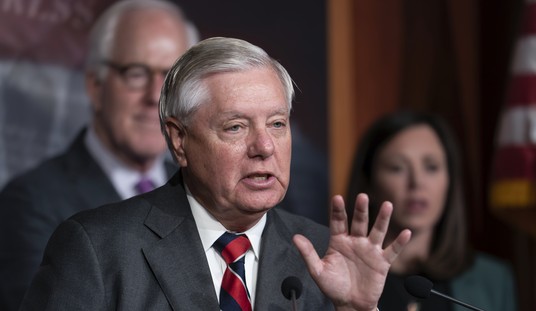In the American Declaration of Independence, our Founding Fathers proclaimed that we are endowed by our Creator with the unalienable right to the pursuit of happiness. Unfortunately, we have long forgotten what our Founders meant by that now iconic phrase—“the pursuit of happiness”—and, as a consequence, we are now in jeopardy of losing the very liberty our Founders purchased for us at the risk of their lives, their fortunes, and their sacred honor.
Indeed, if we properly understood what our Founding Fathers meant by the phrase “pursuit of happiness,” a photographer in New Mexico, a pastry business owner in Colorado, bed and breakfast owners in Vermont and Hawaii, a T-shirt business owner in Kentucky, and many others, would not have faced government prosecution simply for refusing to violate their conscience by endorsing what they believe is immoral sexual behavior. And religious organizations and business owners across the country would not be threatened with government imposed fines for refusing to provide their employees with abortion pills, thereby becoming complicit in what they sincerely believe to be nothing less than murder.
As these examples illustrate, government is now—in an increasing variety of contexts—forcing us to bow to the altar of state-mandated values and policies, even when doing so violates our religious conscience, and is employing the power of the state to punish us if we don’t.
And to a great extent the problem comes down to our failure to understand what our Founding Fathers meant when they used the simple but profound phrase—“pursuit of happiness.”
In our modern consumer-oriented society, we have come to believe that “happiness” is simply a state of transitory physical or emotional pleasure. Consequently, the great majority of Americans view the “pursuit of happiness” as nothing more than the right to pursue whatever provides them with pleasure, however misguided or immoral that pleasure might be.
Recommended
But that’s not at all what our Founding Fathers meant when they used the now famous phrase “the pursuit of happiness” in the Declaration of Independence; for what our Founding Fathers meant by “the pursuit of happiness” was the pursuit of virtue, not the pursuit of pleasure.
Thomas Jefferson stated that “The order of nature [is] that individual happiness shall be inseparable from the practice of virtue” and “[w]ithout virtue, happiness cannot be.” George Washington said, “There is no truth more thoroughly established, than that there exists . . . an indissoluble union between virtue and happiness” and “[h]uman happiness and moral duty are inseparably connected.” Benjamin Franklin proclaimed that “virtue and happiness are mother and daughter” and “without virtue man can have no happiness in this world.” John Adams stated that “The happiness of man, as well as his dignity, consists in virtue.”
To our Founding Fathers, then, happiness was the result of living a morally excellent life. To them, the “pursuit of happiness” was the pursuit—in a very real, ethical, and religious sense—of living virtuously.
Our Founding Fathers’ recognition that the pursuit of happiness consisted in the pursuit of virtue was not, of course, a new idea. Aristotle taught that “He is happy who lives in accordance with complete virtue.” The Roman stoic Epictetus said “virtue is rewarded with happiness.” The medieval theologian and philosopher St. Thomas Aquinas stated “Happiness is secured through virtue.” And Charles de Montesquieu, the French Enlightenment thinker, stated originally what Jefferson later restated—that “without virtue, happiness cannot be.”
In short, by using the phrase “pursuit of happiness” our Founders were simply acknowledging an ethical principle that has been consistently proclaimed throughout the history of Western Civilization—that to be happy is to be good; that to pursue happiness is to pursue virtue.
And our Founding Fathers (and Mothers) adhered to another important principle – namely, that religion was the sure foundation of living a virtuous life. Benjamin Rush, a signer of the Declaration of Independence, stated, “The only foundation for . . . a republic is to be laid in Religion. Without this there can be no virtue, and without virtue there can be no liberty, and liberty is the object and life of all republican governments.” George Washington, in his famous Farewell Address, stated, “. . . let us with caution indulge the supposition that morality can be maintained without religion . . . Reason and experience both forbid us to expect that national morality can prevail in the exclusion of religious principle.” Abigail Adams, writing to her son and future President of the United States, John Quincy Adams, stated “The only sure and permanent foundation of virtue is religion. Let this important truth be engraven upon your heart.”
In recognition of these truths, our history is replete with examples of religiously grounded conscientious exemptions from many different sorts of laws—from laws requiring the taking of oaths, to laws requiring military service; from laws requiring the removal of hats in court, to laws requiring public tax assessors to compile lists of military-age citizens, to mention just a few. Exemptions from laws on account of religiously based conscientious objections are and always have been grounded in the recognition that the state has the obligation to acknowledge, respect, and protect every citizen’s unalienable right to pursue a virtuous life by living in accordance with a religiously informed conscience. Our Founders acknowledged this precept because they recognized that a citizen’s obligations to God are prior to and higher than a citizen’s obligations to the state and that, consequently, the state has no right to force citizens to violate their conscience.
It is a dangerous thing to forget history—especially when it’s the history behind the phrase “the pursuit of happiness.” For the result is a direct subversion of the principles of the Declaration of Independence and a betrayal of the government’s sacred obligation to protect every citizen’s unalienable right to pursue the virtue our Founder Fathers esteemed.


